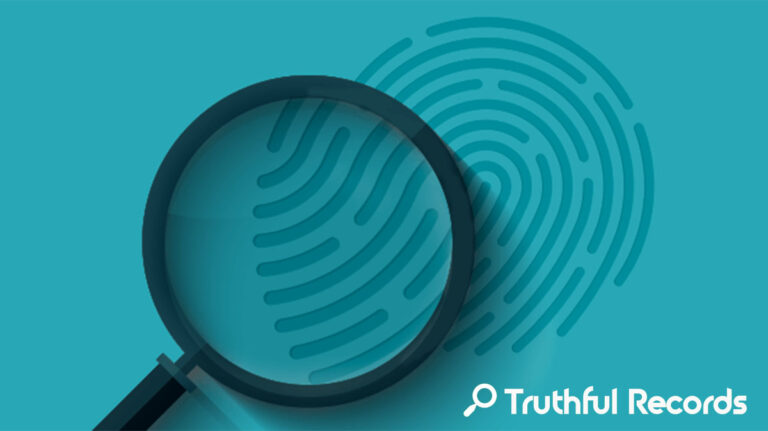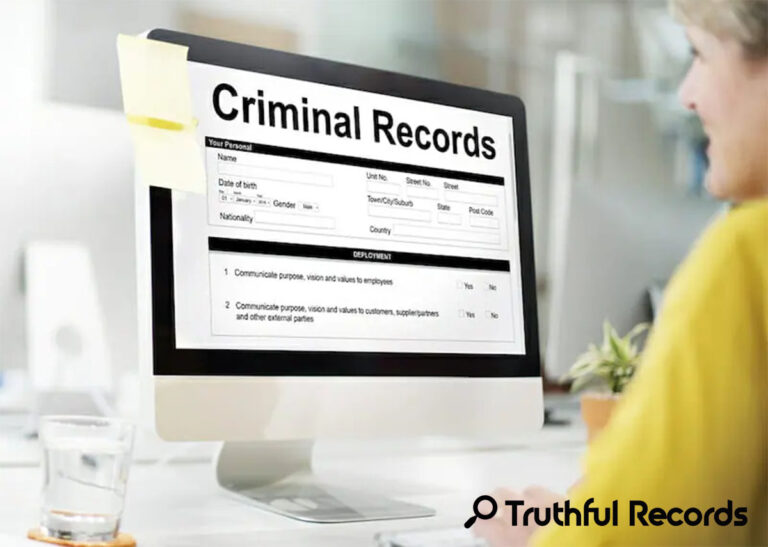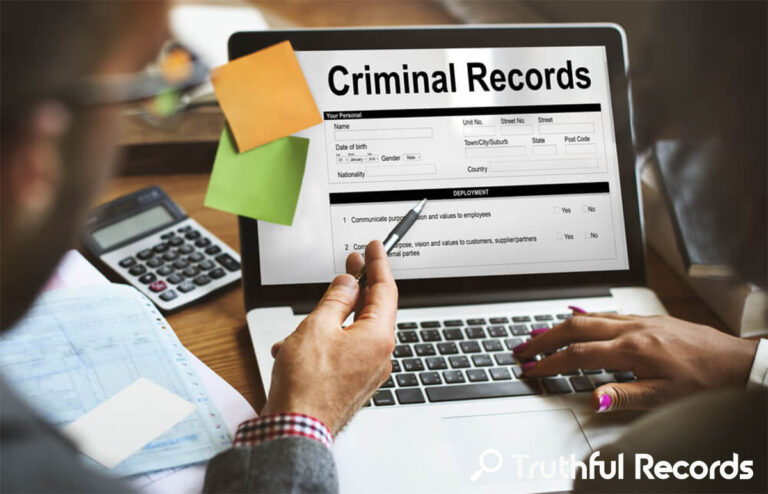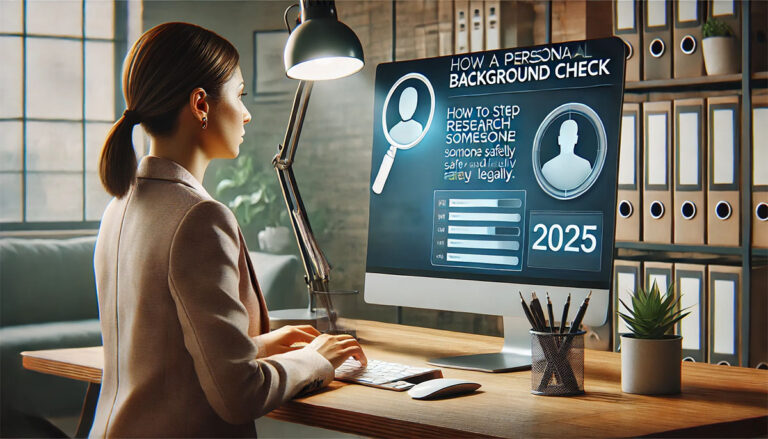How to Do a Background Check on Yourself: A Complete Guide 2025
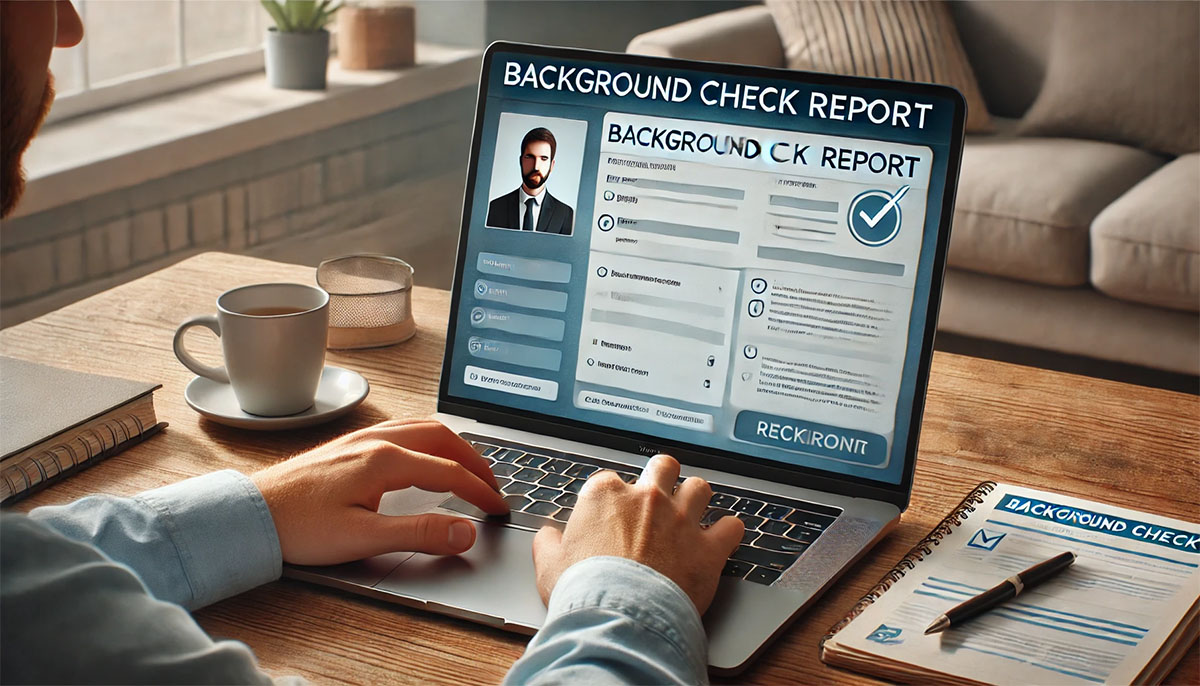
Did you know that 94% of employers run background checks during the hiring process? Whether you’re on the job hunt, looking to rent an apartment, or just curious about what’s out there on you, it’s super important to know what shows up in your background check! I’ve helped tons of people navigate self-background checks, and in this guide, I’ll walk you through how to review your own records using both free and paid methods. Ready to take control of your personal info? Check out this personal background check guide to get started!
Understanding Different Types of Background Checks

When you think of background checks, what comes to mind? Well, there are a few common types that pop up when you’re going through the hiring process, applying for an apartment, or even trying to get a loan. Let’s dive into the most common ones and what exactly they show!
1. Employment Background Checks
This is probably the most common type of background check! Employers run these checks to make sure you’re who you say you are and that you’re trustworthy. So, what do they look at? Typically, they’ll check your job history, education, and sometimes even your references. If you’ve been in trouble before or have criminal records, they might peek at that, too.
But don’t freak out just yet! You can always double-check your own employment records to see what shows up (I’ve got a guide for that here).
2. Criminal Background Checks
Criminal background checks are another big one. They’re usually a part of the hiring process, especially for jobs where security is a concern. This check will dig into your criminal history (if you have one) and flag any convictions. Employers might look for felonies, misdemeanors, or even things like DUIs.
But here’s the thing: not all criminal records are created equal. Some offenses may not even show up depending on where you live or what the job requires. If you’re worried about your criminal record, there are ways to get it cleaned up or sealed in certain cases.
3. Credit Background Checks
Ah, the dreaded credit check. If you’re renting an apartment, applying for a mortgage, or seeking a job in finance or banking, they might want to check your credit history. This looks at your financial habits—like if you’ve been late on payments, how much debt you carry, and how responsible you are with your money.
Remember: Your credit report isn’t the same thing as your credit score, although they’re related! You can get your free credit report once a year from places like AnnualCreditReport.com. Keeping an eye on that can really help when it’s time for that credit check!
What Information Appears in Each Type?
So, what exactly shows up in these checks? Here’s a quick breakdown of what each type might reveal:
- Employment checks: Job history, references, education, and sometimes criminal records.
- Criminal checks: Convictions (felonies, misdemeanors, and sometimes arrests).
- Credit checks: Your credit score, payment history, debt levels, and any bankruptcies or foreclosures.
Who Can Access Your Background Information?
You might be wondering, “Who the heck can look at my background?” Well, the short answer is: not everyone! Employers, landlords, banks, and sometimes even insurance companies can access your background info, but they usually need your permission first. That’s right—your consent is often required!
That said, you do have rights. No one should be looking at your background info without a valid reason or your explicit okay. You can also ask to see your own records if you’re curious.
Legal Rights and Regulations (FCRA Compliance)
You’ve got rights when it comes to background checks, thanks to the Fair Credit Reporting Act (FCRA). This law ensures that anyone pulling your background report must do it with your permission, and they must follow specific guidelines. They can’t just go around sharing your info willy-nilly!
If an employer decides not to hire you based on something in your background check, they have to notify you and give you a chance to dispute any errors.
Want to know more about your legal rights? Check out this guide on FCRA compliance from the Federal Trade Commission (FTC) to keep yourself informed and protect your personal info!
Free Methods to Check Your Background

Checking your background doesn’t always require a pricey service. Believe it or not, there are a bunch of free methods to get a solid look at your history. And hey, they’re not that hard to do! Let’s dive into a few ways you can get the scoop on yourself without spending a dime. Trust me, it’s easier than you think!
1. Reviewing Public Records Databases
Did you know there’s a ton of information about you that’s out there in public records? It’s true! And the good news is that many of these records are free to access. Things like birth certificates, marriage licenses, and property deeds are all public. You can usually find this stuff through state or local government websites, or even local courthouses.
While not everything will be available online, it’s a great place to start. If you’re looking for specific records, you might need to reach out to local agencies, but don’t worry – most public records are available at no cost. Want to start digging? Try searching for public records in your state or visit a site like USA.gov to learn more about accessing these records!
2. Social Media Audit Process
It’s time to face the music: your social media accounts could be telling more of your story than you realize. From your Facebook posts to your Instagram photos, these platforms can be goldmines for digging into your online footprint. You’d be surprised what shows up when you do a quick audit.
First things first: search for your name on the big platforms. See what pops up! Do you have old posts that are a little, well, embarrassing? You might want to clean up your accounts if you’re planning to apply for a job or a lease. Remove old, outdated content that no longer aligns with your image. But don’t stop there – try Google yourself and see what other accounts or forums your name might be attached to!
3. Court Record Searches
Sometimes, the best way to find out about your legal history is to look up your court records. Don’t worry – it’s a lot easier than it sounds. Many local court websites allow you to search for court cases by your name, and best of all, it’s often free! You can see if you’ve ever been involved in any legal matters, like traffic violations or civil cases.
If you live in a larger area, these searches are typically available online. But for smaller counties or more specific cases, you might need to call the courthouse directly. Either way, it’s definitely worth checking out if you’re curious about your legal history.
4. Sex Offender Registries
You might not think of this as something you need to check, but it can be a quick way to ensure that no one’s mistaken your identity. All states in the U.S. have sex offender registries available online. You can easily search to see if your name is listed, which can help prevent any unwanted surprises during a background check.
The registry will list anyone convicted of a sex crime, so it’s good to know if there’s any mix-up. But don’t panic! If you don’t have a reason to worry, then there’s no need to be concerned. The National Sex Offender Public Website (NSOPW) is a good place to search this info.
5. Professional License Verification
If you’ve ever held a professional license, like a nurse, lawyer, or even a contractor, checking your license history is important! It’s an easy way to ensure that all your credentials are in order. Many states offer online databases to verify if your professional license is still valid or if there are any complaints or issues tied to it.
This is especially important if you work in fields that require certifications, like healthcare or law. You don’t want to find out something’s off when a potential employer or client checks your background. For example, you can use Verify a Professional License to check the status of your license.
Using Commercial Background Check Services
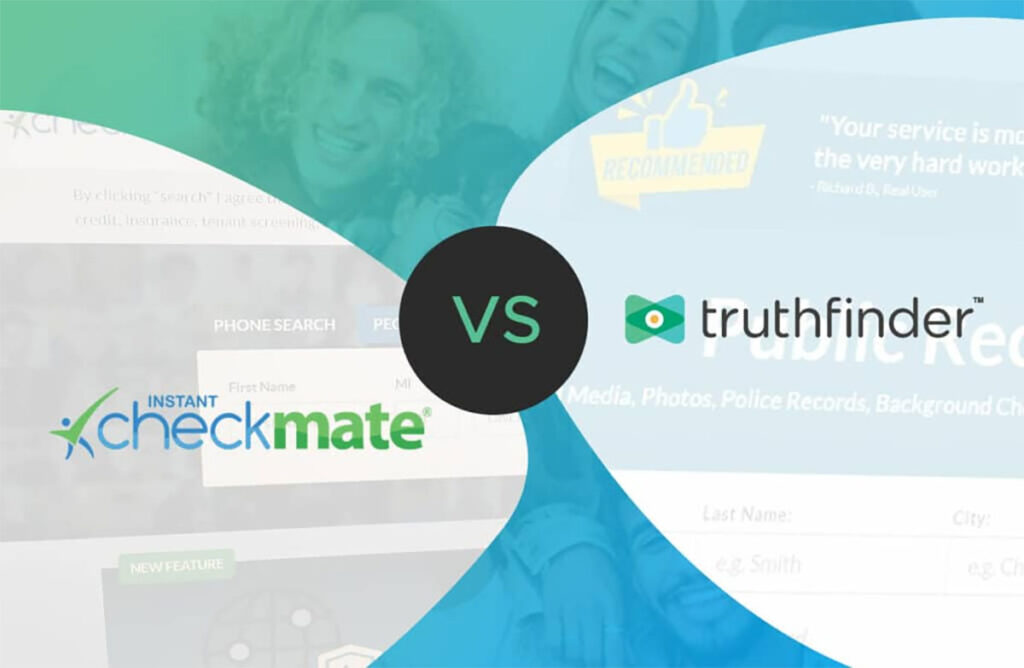
Alright, so you’ve tried the free methods to check your background, but now you’re thinking about stepping it up with a commercial background check service. These services can offer way more in-depth details about your history. But before you dive in, let’s break down what these services are all about, what they can show you, and if they’re really worth the cost.
1. Top Background Check Companies
There are a ton of companies out there that offer background checks, but how do you know which one to pick? Well, some of the most popular and trusted services include:
- Checkr: Known for being super fast and accurate, Checkr is used by tons of employers for hiring purposes. They offer a wide range of checks, from criminal to employment history.
- BeenVerified: This service is awesome if you want a comprehensive search that includes public records, social media activity, and more. It’s great for personal use and even finding out more about your digital footprint.
- TruthFinder: A reliable choice if you want to dig deep into someone’s past. It’s a solid option for people looking to find public records, criminal history, and more.
- Instant Checkmate: Instant Checkmate offers detailed reports, including things like criminal records, arrest warrants, and even marriage or divorce records.
These services are often used by employers, landlords, and people who just want to check up on their own background. They’re all pretty reputable, but be sure to do a little research to see which one fits your needs best.
2. Cost Comparison and Features
So, what’s it going to cost you to get a professional background check? Prices vary depending on the company and what level of detail you’re looking for. Here’s a quick breakdown:
- Basic Reports: Some companies offer basic reports starting at around $10–$20. These reports usually include things like criminal history or a quick address check.
- Premium Reports: If you want the full package, expect to pay around $30–$50 or more. This typically includes in-depth searches across public records, credit reports, professional licenses, and sometimes social media accounts.
- Subscription Services: Some services offer monthly subscriptions if you need ongoing background checks for multiple people or businesses. Prices here can range from $25–$40 per month.
These costs are worth it if you need a thorough search. However, if you’re just doing a personal check or checking one person, a one-time fee might be all you need.
3. What These Services Can Reveal
Commercial background check services can reveal a ton of information about you (or anyone else) that you might not have thought about. Here’s a look at what these services can dig up:
- Criminal Records: This is usually the most sought-after info. Background check services can search local, state, and federal databases to find any criminal records. Keep in mind, though, some records may not show up depending on the state or jurisdiction.
- Credit History: Some services offer credit report details, which are especially useful if you’re looking for financial history. This can show whether a person has filed for bankruptcy, missed payments, or accumulated debt.
- Employment History: Many services can access employment verification to confirm your job history, but they may require permission from your employer. This is especially useful for hiring purposes.
- Address History: Knowing where a person has lived can be important in certain background checks, like when you’re applying for a lease. Some services track this info to show where a person has lived over the years.
- Social Media Activity: Yes, some background check companies go the extra mile by scanning social media profiles. This helps get a feel for someone’s personality and behavior online.
These services give you a lot more insight than a basic, free background check, making them super handy for big decisions.
4. Limitations and Accuracy Considerations
But before you get too excited, it’s important to know that commercial background checks aren’t always perfect. Here’s what you need to keep in mind:
- Accuracy: The accuracy of these reports can vary. While most services do a great job, some might include outdated or incorrect information. Always cross-check anything you find with your own research.
- Incomplete Data: Not every record is available everywhere. Some information, especially in rural areas or smaller courts, might be missing from a background check. Also, some states have restrictions on what can be accessed or how long ago an offense can show up.
- Cost: While these services are packed with info, they can get expensive, especially if you need detailed reports for multiple people or businesses.
- Privacy Concerns: These services are collecting a lot of personal data, so it’s important to make sure you’re using a reputable company. Always read the privacy policy to know how your data will be handled.
So, while commercial background check services are super useful, you should definitely be aware of their limitations. If you’re looking for something specific, don’t expect everything to be 100% accurate or complete.
How to Check Your Criminal Record

Wondering how to check your criminal record? You’re not alone! Whether you’re curious about what’s out there or trying to get ahead of a background check, it’s important to know how to access your criminal history. The good news? It’s not as hard as it sounds! Let’s break down the steps you can take to check your criminal record and what to do if you find something unexpected.
1. Requesting State and Federal Records
When it comes to criminal records, the first place to check is usually your state. States maintain their own criminal records, which means they often have different processes for accessing them.
You can start by going to your state’s official website. Many states have online portals where you can request your criminal record. If you’re in a hurry, you might be able to request records in person or over the phone. Just be ready to provide some basic information like your full name, date of birth, and any other details they might ask for.
Now, for federal criminal records, those are a different beast. To check if you have any federal charges, you need to go through the FBI’s system. You can request a copy of your record through the FBI’s Identity History Summary Check. This is a more involved process and may take several weeks, but it’s an official way to get a comprehensive report.
2. Getting Copies of Arrest Records
If you’re specifically concerned about arrest records (you know, the times you were booked but maybe didn’t end up convicted), there are a few ways to track those down. Local law enforcement agencies (like your county or city police department) typically maintain arrest records. You can visit or contact them to request your records.
Some states even allow you to request a copy of your arrest record online! But if you’re looking for something more formal or if your arrest occurred a long time ago, you might need to submit a written request. Just make sure to check the specific process for your area. You might need to pay a small fee, too. But hey, it’s worth it if you want to know exactly what’s on your record!
3. Checking Interstate Databases
What if you’ve lived in more than one state? Good question! You might be wondering if your criminal record follows you from state to state. Luckily, there are national databases that track criminal records across multiple states.
One of the big ones is the National Criminal Information Center (NCIC). This is a federal database that includes criminal history from all over the country, and it’s used by law enforcement agencies to get a full view of someone’s criminal background. Unfortunately, you can’t directly access this yourself. But, don’t worry! Many background check services (like Checkr or BeenVerified) tap into these databases, so you can get a national overview if you need it.
4. Understanding Expungement Options
What if you find something on your record that you’d rather forget? Well, it’s possible to have certain things wiped clean through a process called expungement! Expungement is when a court removes a criminal conviction from your record, making it like it never happened. But not every conviction is eligible for expungement, and the rules vary depending on where you live.
In most cases, you need to file a petition with the court, and there might be a waiting period before you can apply (for example, after a certain number of years). If you’re dealing with minor offenses or something that happened a long time ago, you might be in luck. But for more serious crimes, it can be a bit trickier.
To get started, check out this resource on expungement laws in your state to see if you’re eligible. If you’re unsure, you might want to reach out to a lawyer who specializes in criminal law to guide you through the process.
Reviewing Your Credit History
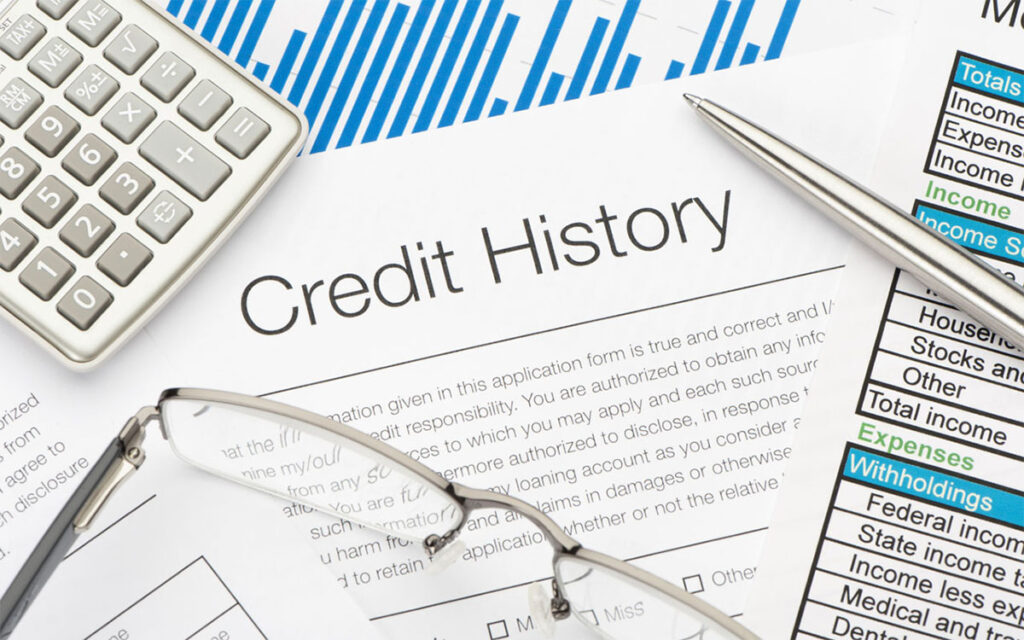
Let’s talk about your credit history! Whether you’re planning to buy a car, rent an apartment, or just want to make sure your financial history is in order, reviewing your credit history is an important step. And the best part? You can actually access your credit report for free! I know, right? But there’s more to it than just checking the numbers. Let’s dive into how to review your credit history, understand your credit score, and handle any issues you might find!
1. Accessing Free Credit Reports
Here’s the big win: you can check your credit report for free! That’s right—every year, you’re allowed to access your credit report from each of the three major credit bureaus (Equifax, Experian, and TransUnion) at no cost. All you need to do is visit AnnualCreditReport.com and request your reports. It’s super simple and doesn’t cost you a dime.
Now, you’re probably wondering, “How often can I check it?” Well, you can check your reports once a year for free. But if you’re really keeping a close eye on things, you can also sign up for a credit monitoring service (some of which offer free trials!) to get regular updates.
2. Understanding Credit Scores
Okay, so you’ve got your credit report—now what? Time to talk about that all-important credit score! Your credit score is a number that represents how trustworthy you are with credit. The higher the score, the better. A score of 700 or above is generally considered good, while anything under 600 could be a red flag for lenders.
Your credit score is calculated using several factors like:
- Payment history (Did you pay your bills on time?)
- Credit utilization (How much of your available credit are you using?)
- Length of credit history (The longer, the better!)
- Types of credit (Do you have a mix of credit cards, loans, etc.?)
- New credit inquiries (Are you applying for too much credit?)
Understanding how your score is calculated helps you see where you can improve. Want to check your score for free? Services like Credit Karma offer free access to your score, so you can keep track of where you stand!
3. Identifying Errors and Fraudulent Activities
When you pull your credit report, don’t just glance at the score—take a good look at the details! This is where things can get a little tricky. Mistakes can happen, and sometimes, fraudulent activities can pop up. Here are some common things to look for:
- Incorrect personal information: Maybe your name is misspelled, or your address is outdated. These errors might seem small, but they can still impact your credit.
- Incorrect accounts or charges: Did you open a credit account that you don’t recognize? Is there a charge on your report that wasn’t made by you? This could be a sign of identity theft!
- Closed accounts still listed as open: If you’ve closed a credit card but it’s still showing as open, that could hurt your score.
- Missed payments or late fees: Check if there are any accounts showing late payments that you didn’t actually miss.
Be sure to check everything carefully, and if you find something odd, don’t ignore it! These errors can drag your score down and could be a sign that someone is messing with your finances.
4. Dispute Process for Incorrect Information
Okay, so you’ve found some mistakes or maybe some shady activity on your report. What now? Don’t panic! The good news is, you have the right to dispute any errors you find. Each credit bureau allows you to file a dispute online, and they’re required to investigate the issue within 30 days.
Here’s what you should do:
- Contact the credit bureau: Visit the website for Equifax, Experian, or TransUnion and follow their steps to dispute the error.
- Provide supporting documentation: If you can, include any documents that support your claim (like a bank statement or payment confirmation).
- Wait for resolution: The bureau will investigate, and if they find the error, they’ll fix it on your report. If they don’t agree with you, you can escalate the dispute or even involve a legal professional if needed.
It’s a good idea to keep an eye on your reports during and after the dispute process to make sure the issue gets resolved.
Digital Footprint Assessment

We all leave a digital footprint, whether we like it or not! Your online presence is constantly being tracked and stored. This is a big deal because it can affect everything from your job prospects to your personal reputation. But don’t worry! You’ve got control over what’s out there, and doing a digital footprint assessment is a great way to clean up your online presence. So, how do you do it? Let’s break it down!
1. Google Search Analysis
Start by Googling yourself—yes, you read that right. Open up a browser and type your full name into the search bar. Take a look at what comes up! Are there any old social media posts or embarrassing mentions? Or maybe some outdated information that no longer represents you?
When you search yourself, don’t just stop at the first page of results. Dig a little deeper and see what pops up on the second, third, or even fourth page! You never know what’s lingering in the corners of the internet. If you find things that you don’t like, it might be time to clean up your online presence. You can remove certain things or even ask websites to take down old content.
2. Image Search Results
Yep, it’s time to take a look at what images are floating around the web under your name! Go to Google, click on the “Images” tab, and type your name into the search bar. The results might surprise you!
Do you see professional photos that align with your online persona? Or maybe you spot some random photos that you wish weren’t associated with you? If you see anything that doesn’t look right or makes you cringe, it’s time to take action.
There are a few ways to manage these images:
- Remove unwanted images: You can try reaching out to the website hosting the image and ask for it to be removed. This works best if the image violates privacy or is outdated.
- Push down negative images: If you can’t remove an image, you can work on creating and promoting positive content (like blog posts, articles, or social media profiles) to push the negative stuff further down in the search results.
3. Data Broker Opt-Out Procedures
Did you know that data brokers are collecting your personal info and selling it? Yep, it’s true. These companies gather everything from your name and address to your buying habits and social security number. The good news is you can opt-out of having your data shared!
Here’s how:
- Search for data brokers: You can start by finding the top data brokers, like Acxiom or Experian, and visit their opt-out pages.
- Submit an opt-out request: Many brokers have an easy opt-out process on their websites. Some may require you to fill out a form or even mail in a request. Be patient—it can take a few weeks to see results!
By opting out, you can stop your personal info from getting sold to third-party companies. This is a big step toward protecting your privacy online!
4. Online Reputation Management
Managing your online reputation is essential—especially in today’s digital world. If your online presence isn’t as polished as you’d like, it’s time to do some damage control. Here are a few tips to help you manage your digital reputation:
- Set up Google Alerts: You can set up Google Alerts for your name and other key terms. That way, you’ll get notified whenever something new pops up online that’s related to you. This makes it easier to stay on top of what’s being said or shared about you.
- Update your social media profiles: Make sure your social media accounts are professional, up-to-date, and aligned with the image you want to project. Clean up any old posts that don’t reflect who you are today. (It’s as simple as deleting or archiving them!)
- Create positive content: One of the best ways to improve your online reputation is by actively creating and sharing positive content. Start a blog, post helpful articles, or engage in relevant social media discussions. This can boost your credibility and push negative content further down in search results.
Taking Action on Negative Findings

Okay, so you’ve done your homework and found some negative stuff in your background report, credit history, or digital footprint. Don’t freak out! It happens to the best of us. The good news? You’ve got the power to fix it! Here’s how to take action, get those errors corrected, and move forward with confidence. Let’s dive into what you can do when you find negative or incorrect info out there!
1. Correcting Errors in Background Reports
First thing’s first: if you spot any errors in your background reports, you’ve got to correct them ASAP. Mistakes in your report can hurt your chances at a new job, apartment, or loan, so don’t let them slide! Here’s what you can do:
- Check the details: Go over everything carefully. Look for inaccuracies in things like your job history, criminal records, or even personal details like your name or address.
- Reach out to the background check company: If you find something that’s wrong, contact the company that created your report. Most companies allow you to dispute errors easily. Whether it’s a mix-up with your name or a record that’s not yours, they’ll usually investigate and fix it.
- Provide supporting documents: If you’ve got evidence to show that the information is incorrect (like a court ruling or an employment record), send it along with your dispute. The more proof you can provide, the faster things will get sorted!
The key here is acting fast. Don’t let negative or incorrect info linger for longer than necessary!
2. Legal Remedies for Incorrect Information
What if the error is serious and it’s damaging your reputation or causing you financial loss? That’s when legal remedies come into play! There are laws in place to protect you from mistakes and fraud, so here’s how to use them:
- Fair Credit Reporting Act (FCRA): If you find errors on your credit report, the FCRA allows you to dispute the information with the credit bureaus (Equifax, Experian, and TransUnion). If they don’t resolve it, you could take further action to correct it.
- Identity theft: If someone’s used your identity to open accounts or commit fraud, you can report it to the Federal Trade Commission (FTC) and file an Identity Theft Report. This can help you clear up your record and stop the damage.
- Sue for damages: In some cases, if a company refuses to correct your background report or credit report and it’s causing you harm, you might be able to sue them for damages. It’s always a good idea to consult a lawyer if you think this could be the case!
Legal remedies can get a little complicated, but don’t worry—there are options. If things go south, getting a lawyer involved might be necessary to make sure everything gets fixed.
3. Working with Credit Bureaus
If your credit report has negative info, and you think it’s wrong, you should go straight to the credit bureaus. They’re the ones that hold the keys to your credit history. Here’s how to handle it:
- Dispute the error: Start by disputing the error with the credit bureau that’s reporting the mistake. You can usually do this online. The bureau will investigate, and you should hear back within 30 days.
- Follow up: Keep track of your dispute. If it’s not resolved in the time frame, follow up with the credit bureau. Sometimes, the initial investigation isn’t enough to clear up the problem, and you’ll need to keep pushing.
- Check your report regularly: Even after the error’s fixed, keep an eye on your credit reports. That way, if anything pops up again, you can catch it early!
If your credit score has taken a hit because of incorrect information, fixing it might take some time. But being proactive with the credit bureaus can speed up the process!
4. Professional Assistance Options
What if the process feels like too much? Don’t worry—you don’t have to handle it all by yourself! There are professionals who can help you clean up your records and guide you through the process. Here’s what to consider:
- Credit repair companies: These companies specialize in helping people dispute negative items on their credit reports. They can help with the paperwork and communications with credit bureaus. However, be cautious—make sure you choose a reputable company to avoid scams. The Consumer Financial Protection Bureau has some great tips on choosing a good credit repair company.
- Legal professionals: If things are really messy and you’re dealing with identity theft or potential legal issues, a lawyer who specializes in credit and consumer protection laws can help. They can guide you through the process and even represent you in court if needed.
Sometimes you just need a helping hand to get things sorted out. Don’t hesitate to reach out to the professionals if the process gets overwhelming!
Conclusion
Regularly checking your background is a must if you want to stay on top of your personal info and make sure everything’s accurate. By following the steps in this guide, you can keep your public records in check and tackle any problems before they affect your opportunities. Make it a habit, especially before big life changes like job hunting or moving. Don’t wait—take action now and protect your future!

